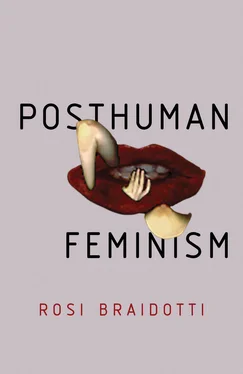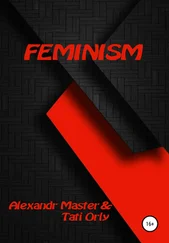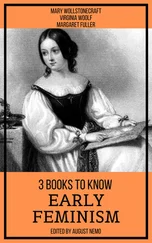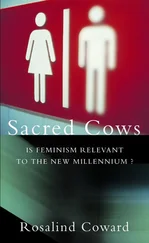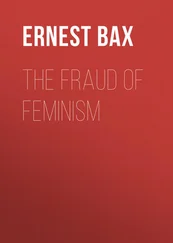The book inscribes the feminist subject in a social context framed by multiple mediations in the posthuman convergence we live in. I propose that feminism is a relational ethics that assumes one gives enough of a damn about the world to look at the broader picture and try to minimize the fractures. Affirmative relational ethics is the value that can support the task of telling the difference between profit-minded, entropic flows of self-interest and generous, empowering flows of solidarity. This is where the collective praxis of constructing social horizons of hope and affirmation becomes essential.
To address these complex questions, I will present the building blocks of posthuman feminism and analyse the distinctive features of its agenda. The book has two parts: the first offering a critique of humanism and anthropocentrism and the second outlining the creative theoretical and practical aspects of the posthuman feminist agenda. Throughout the book I will highlight the contributions of different strands of feminism as forerunners of posthuman ideas and methods across several generations of feminist scholars and multiple fields of research and activism. This means I will offer large amounts of explanatory material, a critical selection of key texts and a rich bibliography to honour and preserve the memory of the diverse genealogies of feminism.
Part I, ‘Posthuman Feminism as Critique’, starts with the chapter ‘Feminism Is Not (Only) a Humanism’, in which I outline the feminist critiques of humanism as an exclusive practice that supports structural inequalities and forms of social and symbolic disqualification. Humanism upholds an implicit and partial definition of the human, while claiming to provide a universal and neutral representation of all humans. This dominant idea of the human is based on an assumption of superiority by a subject that is male, white, Eurocentric, practising compulsory heterosexuality and reproduction, able-bodied, urbanized, speaking a standard language. This subject is the hierarchical ‘Man of Reason’ (Lloyd, 1984) that feminists, LGBTQ+ people, anti-racists, Black, Indigenous, postcolonial and ecological activists have been criticizing for decades. At the same time humanism historically supported a political programme of emancipation that benefited some of the sexualized and racialized minorities. The chapter carefully traces the contradictions and the limitations of the humanist legacy as well as its lasting appeal.
In chapter 2, ‘The Critical Edge of Posthuman Feminism’, I look at contemporary elaborations of different schools of feminism, notably the liberal and the socialist traditions. Situating them in the posthuman convergence, I analyse neoliberal and neo-socialist feminisms in terms of their respective relationships to humanism, power and politics. I single out their interaction with the mutations of advanced capitalism, in terms of technological developments on the one hand, and investment in living systems on the other. Adaptable in its pursuit of profit, contemporary capitalism perpetuates old inequalities while inventing some new ones. The capitalization of living matter through technological intervention is embraced by transhumanists as a way of enhancing the human, but meets with sceptical receptions by posthuman feminists. It calls for more complex frames of analysis of the interaction between capital, science, technology and social justice.
In chapter 3, ‘Decentring Anthropos: Ecofeminism Revisited’, I argue that human exceptionalism needs to be challenged from within by decentring anthropocentrism. It is not only the case that not all humans are the same to begin with, but also that the entire category of humans is distinct from all, and assumed to be superior to other, species. The naturalized others are excluded categorically from the realm of subjectivity and rights. Appeals to ‘nature’ can be discriminatory as they create structural distinctions and inequalities among different categories of beings, always favouring the humans. Posthuman feminism is innovative because it extends the analyses of sexualized and racialized hierarchies to the naturalized differences of non-human entities. It calls for the recognition of species equality and a more collaborative sense of interdependence between humans and animals, plants, the earth and the planet as a whole. The chapter examines in detail ecofeminism and Indigenous feminisms as the precursors of the post-anthropocentric turn in feminist theory and as a crucial building block of the posthuman turn.
Part II, ‘Posthuman Feminism as Creation’ brings together the creative writings of theorists, artists and practitioners of posthuman feminism.
In chapter 4, ‘New Materialism and Carnal Empiricism’, I argue that while a specific form of situated materialism is central to feminist theory, it has been slightly overshadowed by an emphasis on social-constructivist methods. New-materialist feminism is a precursor of the posthuman turn because it stresses the embodied, embedded and sexuate roots of all material entities, humans included. The strength and relevance of new-materialist feminist thought is to defy binary oppositions by thinking through embodiment, multiplicity and differences. Posthuman feminism challenges the opposition of nature versus culture and argues for a ‘natureculture’ continuum to enable a better understanding of the mutual interdependence of human and non-human others. Many appeal to a critical Spinozist perspective to strengthen this claim. I analyse these approaches as a strategic form of re-naturalization. In the context of the climate change crisis, posthuman feminism shows the extent to which women, LGBTQ+ people and Indigenous people are exposed to risks and hazards. It also proposes new relational practices and ethical values to strengthen cross-cultures and cross-species collaboration.
In chapter 5, ‘Technobodies: Gene- and Gender-editing’, I claim that mainstream posthuman scholarship has marginalized or even obliterated the material bodies of all entities, humans included, through an emphasis on technological mediation and enhancement. But, as feminist new materialism confirms, bodies matter – even though nowadays bodies have mutated into complex relational nodes. Human bodies are in a continuum with the non-human on two fronts. The first is animal life ( zoe ) in its diversity, aware of their grounding on an endangered planet ( geo ). The second is the sharp awareness of being fully immersed in technological mediation ( techno ). Hence the assemblage of what I call ‘ zoe /geo/technobodies’. I see this approach as a critical form of de-naturalization. Bodies are neither natural nor cultural but in constant process between them, as a heterogeneous assemblage of complex relational components. The corporeal empiricism at work in posthuman feminism is the source of counter-knowledges, methods and values. The chapter examines in detail feminist technoscience studies and disability studies as the precursor of the post-anthropocentric turn in feminist theory and as a key building block of the posthuman turn.
In chapter 6, ‘Sexuality Beyond Gender: A Thousand Little Sexes’, I examine the implications of the new-materialist, posthumanist and post-anthropocentric approach for the analyses of contemporary formations of sexuality. I argue that posthuman feminism implies a redefinition of sexuality as an elemental and cross-species force that precedes and exceeds the inscriptions of a binary gender system. I will examine the implications of this position for a reappraisal of the elemental pleasures of materialist posthuman flesh – the powers of Eros – beyond gender dualism. Reference to Indigenous cosmological systems will illuminate the generative power of sexuality and its profound relational ethics. A feminist genealogy of transgressive sexual radicals contextualizes contemporary queer and trans sexualities. The chapter examines the work of feminist literary and visual artists, including Virginia Woolf as the precursor of a molecular sensibility in posthuman feminism.
Читать дальше
